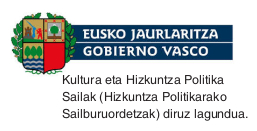The principles of typicality, proportionality and culpability in Administrative Sanctioning Law and their reflection in the Law 40/2015, of 1 October, on the Legal Regime of the Public Sector
DOI:
https://doi.org/10.26876/uztaro.112.2020.4Keywords:
Sanctioning authority, Typicality, Proportionality, Culpability, ResponsibilityAbstract
The sanctioning power of the Administration is a manifestation of the ius puniendi (punitive power) of the State. Thus, it is governed by various principles that have the purpose of offering material and procedural guarantees, but there are three of them that are the most problematic, due to their structure and content: the principles of typicality, proportionality and culpability. To all this, we must also add that Spain amended the law that included those principles in 2015, with a new law: the Law 40/2015, of 1 October, on the Legal Regime of the Public Sector. Does the new law adequately incorporate these three principles? We must, furthermore, analyze the non bis in idem principle and its situation after the judgments of the Court of Justice of the European Union (CJEU) of 2018 and 2019.
Downloads
License
Copyright (c) 2020 Uztaro

This work is licensed under a Creative Commons Attribution-NonCommercial-ShareAlike 4.0 International License.




















